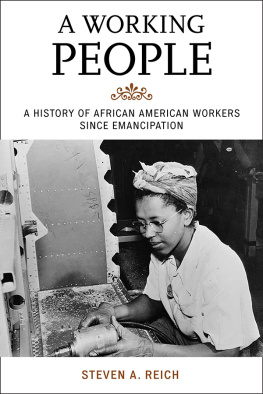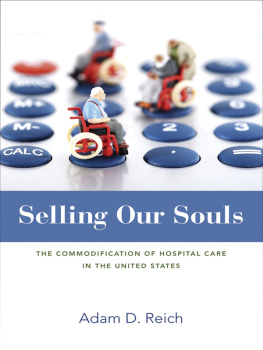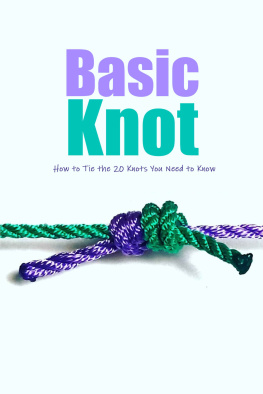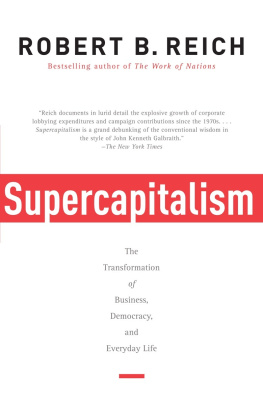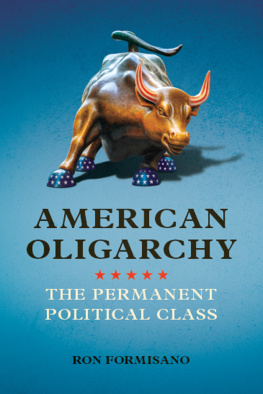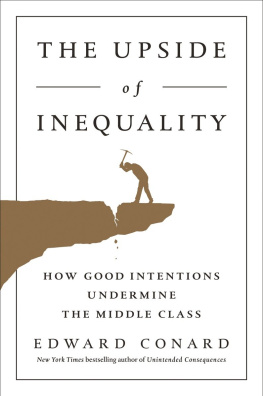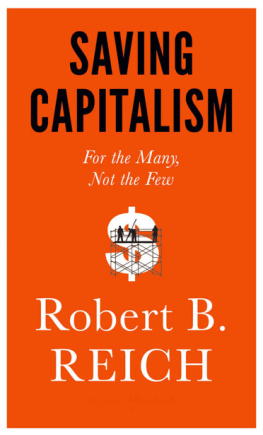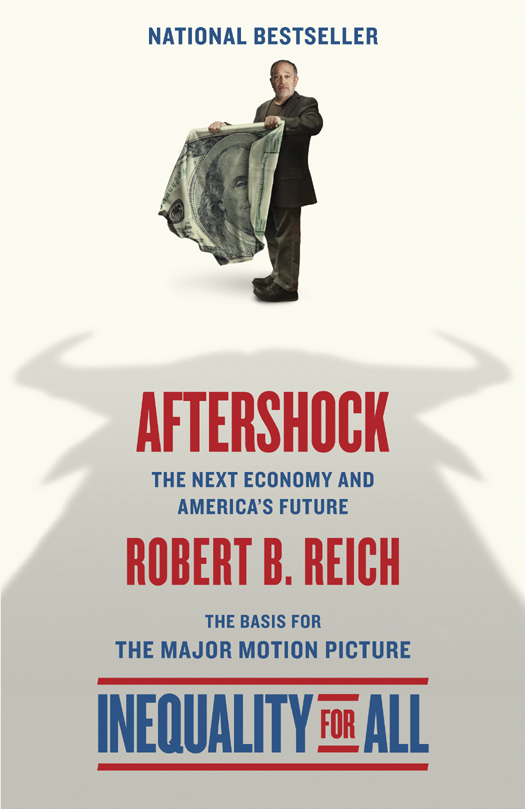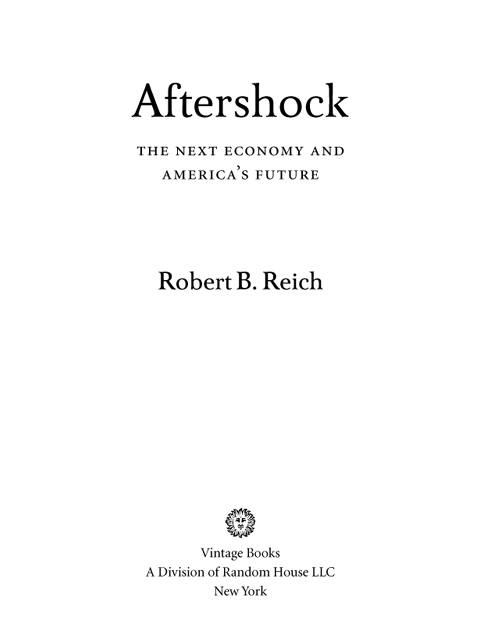VINTAGE BOOKS EDITIONS, 2011, 2013
Copyright2010, 2011, 2013 by Robert B. Reich
All rights reserved. Published in the United States by Vintage Books, a division of Random House LLC, a Penguin Random House Company, New York, and in Canada by Random House of Canada Limited, Toronto. Originally published in hardcover in slightly different form in the United States by Alfred A. Knopf, a division of Random House LLC, New York, in 2010.
Vintage and colophon are registered trademarks of Random House LLC.
Grateful acknowledgment is made to Alfred A. Knopf for permission to reprint an excerpt from Beckoning Frontiers by Marriner S. Eccles, copyright 1951 by Marriner S. Eccles and renewed 1979 by Sara M. Eccles. Reprinted by permission of Alfred A. Knopf, a division of Random House LLC.
The Library of Congress has cataloged the Knopf edition as follows:
Reich, Robert B.
Aftershock: the next economy and Americas future / Robert B. Reich.
Includes bibliographical references.
1. United StatesEconomic conditions2009.
2. United StatesEconomic conditions20012009.
3. United StatesSocial conditions21st centuryForecasting. I. Title.
HC106.84.R45 2010
330.973dc22
2010004134
eISBN: 978-0-307-59452-5
Author photograph Perian Flaherty
Cover art 2013 the Weinstein Company
www.vintagebooks.com
v3.1_c1
To Ella Reich-Sharpe, and her generation
Epochs of private interest breed contradictions characterized by undercurrents of dissatisfaction, criticism, ferment, protest. Segments of the population fall behind in the acquisitive race. Problems neglected become acute, threaten to become unmanageable and demand remedy. A detonating issuesome problem growing in magnitude and menace and beyond the markets invisible hand to solveat last leads to a breakthrough into a new political epoch.
Arthur M. Schlesinger, Jr.,
The Cycles of American History
CONTENTS
PART I
The Broken Bargain
PART II
Backlash
PART III
The Bargain Restored
INTRODUCTION
1
Ive always been short for my age, which I suppose is why I was bullied as a kid more than most. Early on though, I came up with a way to ward off the bullies. I made friends with boys who were bigger and older than I wasand bigger and older than the bullies. My new friends protected me. It was my original protection racket.
Not until many years later did I make a connection between what happened to me as a child and my concerns as an adult for those who have felt helpless in an economy that too often bullies vulnerable people. Economic bullying takes many forms but almost always preys on individuals and families that have little or no power and are at the mercy of those who do.
As inequality has widened in America and in many other places around the worldwith a relatively small number of people getting an increasing share of income and total wealthmany who are left behind feel vulnerable and helpless. They lose their job or their wages drop, and they cant pay their bills. Some end up losing their cars or even their homes. Many discover they cant afford to send their children to college, and dont have enough money to retire. They dont dare get sick.
Unlike me when I was bullied, these people dont have anyone to protect them. They cant count on their employer because companies are under intensifying pressure to maximize profits and share prices, and one way they do this is by cutting payrollslaying off even more workers, reducing pay and benefits, outsourcing and subcontracting.
Most cant count on a union to bargain on their behalf because union membership has declined precipitously; today, fewer than 7 percent of American workers in the private sector belong to a union.
They feel they cant depend on government because political power has shifted to the top along with the money. Money has translated into large campaign donations to politicians who do the bidding of their wealthy patronsreducing their tax rates, widening tax loopholes, gaining government subsidies and bailouts for their businesses, and slashing regulations that impinge on them but would otherwise protect the public. That power shift has also meant less public funding for services that average families needgood schools and public transportation, adequate healthcare and affordable universities, and safety nets to catch them if they slip any further.
Let me be clear. Some inequality is inevitable; we are not born with equal talents and inherited abilities. Some inequality is also necessary if people are to have adequate incentive to work hard, invent, and innovate to the benefit of everyone.
But at some point inequality becomes so wide it undermines democracy. It also hobbles an economy by reducing overall demand. The vast middle class no longer has the purchasing power to keep the economy going, while the small group at the top thats raking in the money spends only a fraction of it, speculates with much of it, and parks the rest around the world wherever it collects the highest return at the lowest tax.
At some point inequality also makes mockery of the ideal of equal opportunity. Upward mobility in America has slowed considerably over the past few decades. Its far more likely now that a child born into a poor family will be poor as an adult and a child born into wealth will be a wealthy adult. The odds of a poor child getting ahead are lower in the United States than in the United Kingdom, despite its history of inherited aristocracy.
And at some point inequality becomes so wide it causes a society to fracture. Average people become so frustrated and fearful they become easy prey for demagogues hurling blame at anyone or any group thats a convenient scapegoat. Politics disintegrates into name-calling. History is rife with examples.
We would be wise not to wait until we reach these tipping points.
2
I wrote the first edition of this book in 2010, not long after the near-meltdown of Wall Street and ensuing Great Recession. It seemed to me that although the excesses of the Street were the proximate cause of the downturn, a deeper explanation was found in the changing structure of the economy.
For three decades before the crash, American workers had become steadily more productivefollowing the same upward trajectory theyd been on for the first three decades after World War II. Yet in sharp contrast to that earlier period, when the median wage rose in tandem with productivity gains, real wages had barely risen since the late 1970s. Almost all the economic gains had gone to the top.
I saw the beginning of this in the late 1970s when I was ran the policy planning staff of the Federal Trade Commission. Wage gains were slowing even as productivity continued to rise. Was it a statistical fluke or the start of a trend?
By the mid-1980s the trend was unmistakable, but its cause was unclear. In The Work of Nations, published in 1991, I argued that the double whammy of global competition and computer technologies had split the workforce into three groups: a small, well-educated elite whose analytic and innovative skills were in ever greater demand; a shrinking number of routine workers whose good-paying (and often unionized) jobs were going abroad or being replaced by automated machinery and computer software; and a large and growing class of personal-service workers burdened by low pay, few benefits, and little security.


